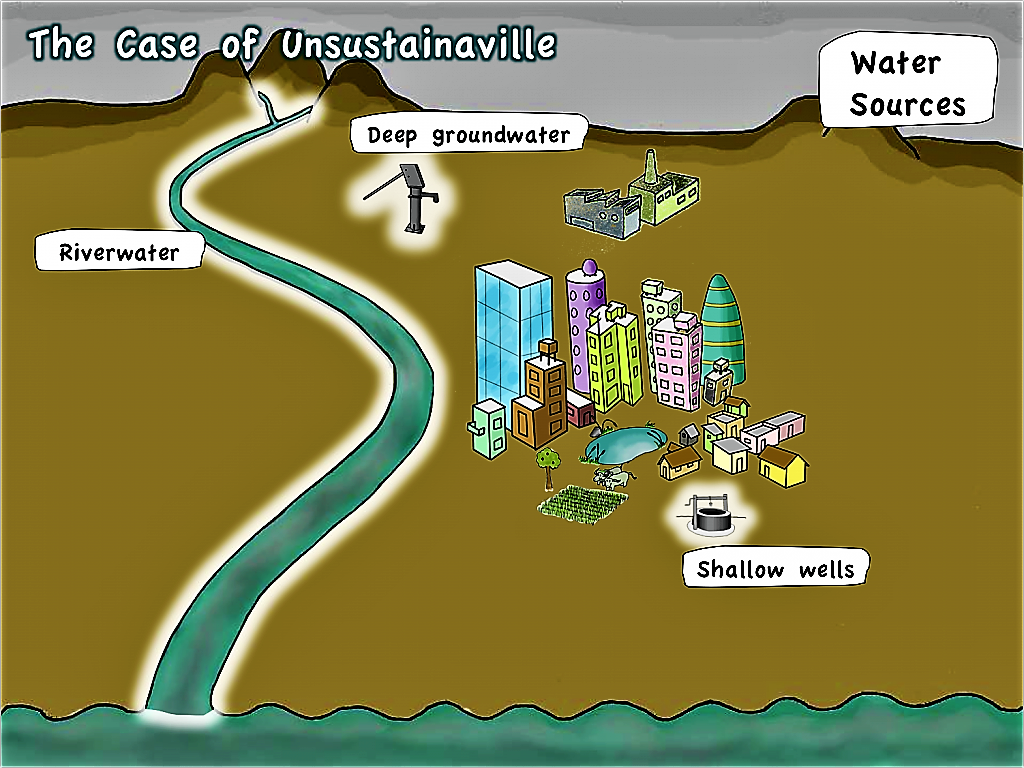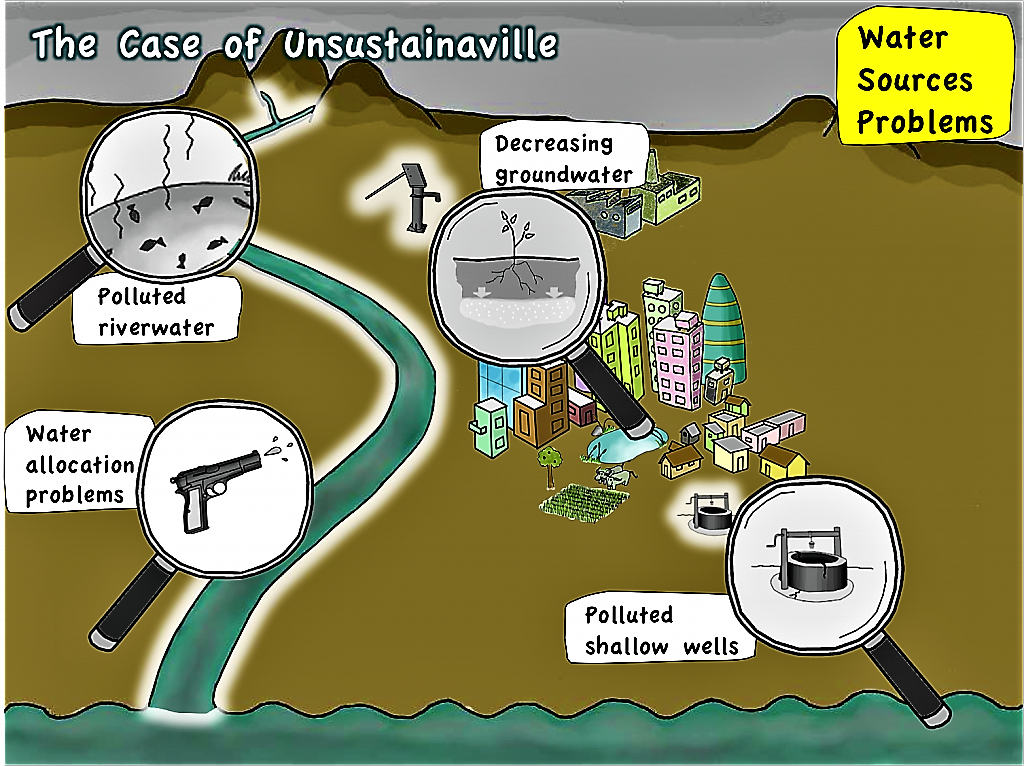Water Sources in Your Area
Here, collect information on water sources - and keep in mind different sections of society, that may use different water sources:
- Where does your water come from (e.g. rainfall, surface water, ground water, waste water, etc.)?
- How is it collected (e.g. open dug well, bore well, rainwater harvesting etc.; individual collection or centralised water supply etc.)?
- Are there different sources of water for the different areas?
Where to get further information: If you do not know the answer to these questions yourself, ask the local stakeholders or the governmental entity or service provider responsible for water supply.
Interlinkages: Try to analyse the interlinkages between water sources and other areas of the water and nutrient cycle: What influences your water sources? This could be the form of wastewater treatment or the lack of wastewater treatment of the village upstream; the water consumption of local industries or agriculture or households; etc).
The Case of Unsustainaville
Water Sources in Unsustainaville

Unsustainaville has three main sources of water:
- Riverwater, and deep groundwater are used to supply the central grid, which serves the industry, the high-income areas, and parts of agriculture
- In the low-income areas, shallow wells are used to get water.
Problems with Water Sources in Unsustainaville

In the case of Unsustainaville, there are several problems with these water sources:
- The groundwater table has been decreasing steadily over the last decade. Because of this, riverwater has to be used as an additional source of water.
- Riverwater is heavily polluted and needs an expensive pre-treatment before it can be used as a source of drinking water
- There is an ongoing conflict with the neighbouring town about water allocation
- The water that people in low-income areas get from their small dug wells is heavily polluted by faecal bacteria and nitrates.
Where do I find further information to tackle problems with water sources?
- See the water sources section of the implementation tools.
- To learn how you could start a change process, see planning and process tools.
- Learn more about integrated water resources management.
Previous and Next Step
Go back to previous step -----> Outline of your Area
Go to next step -----> How is Water Purified?
